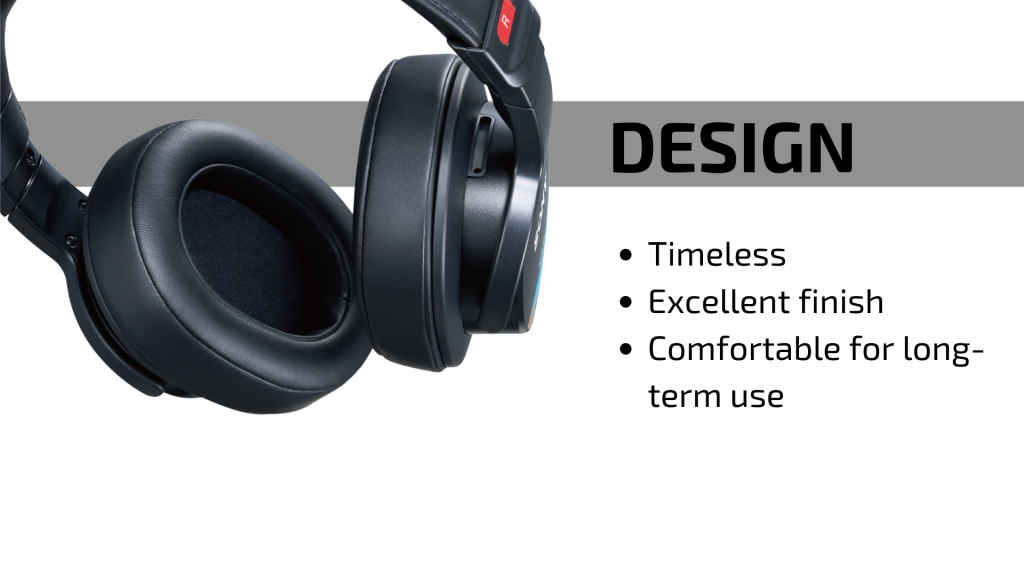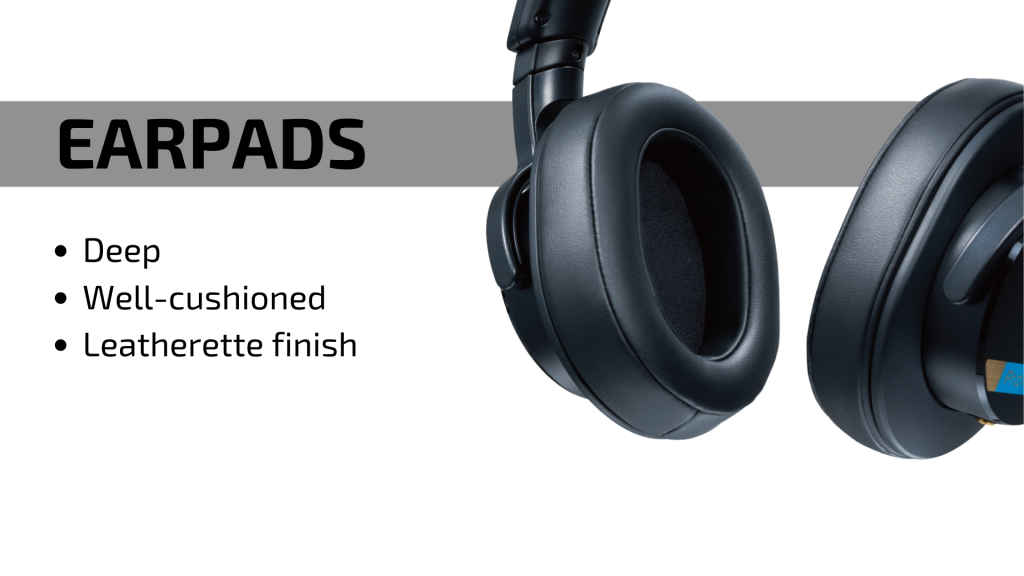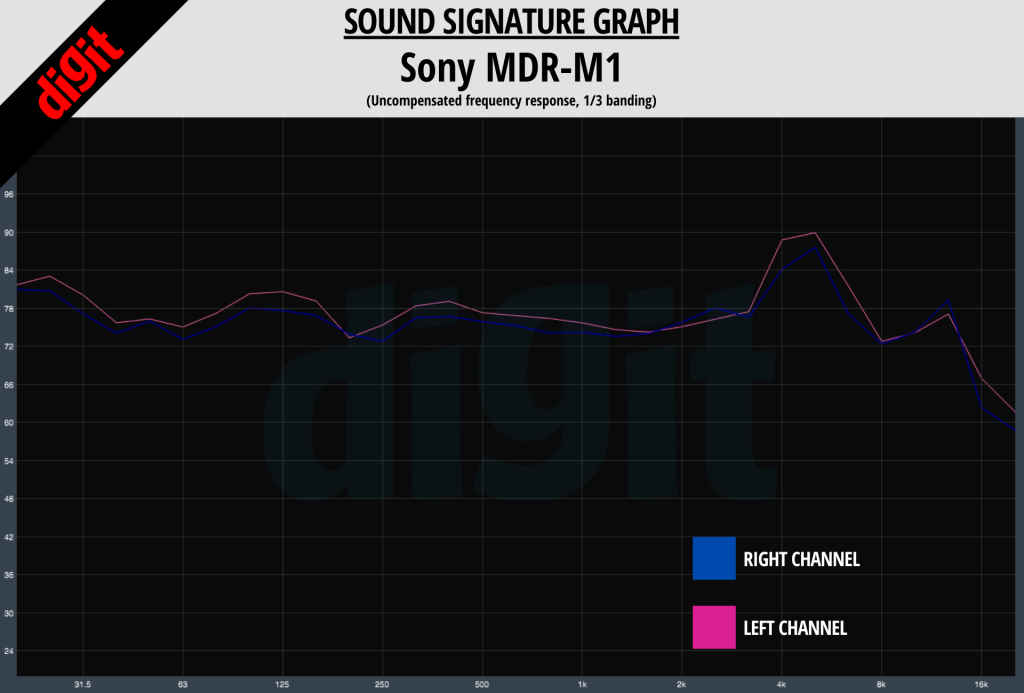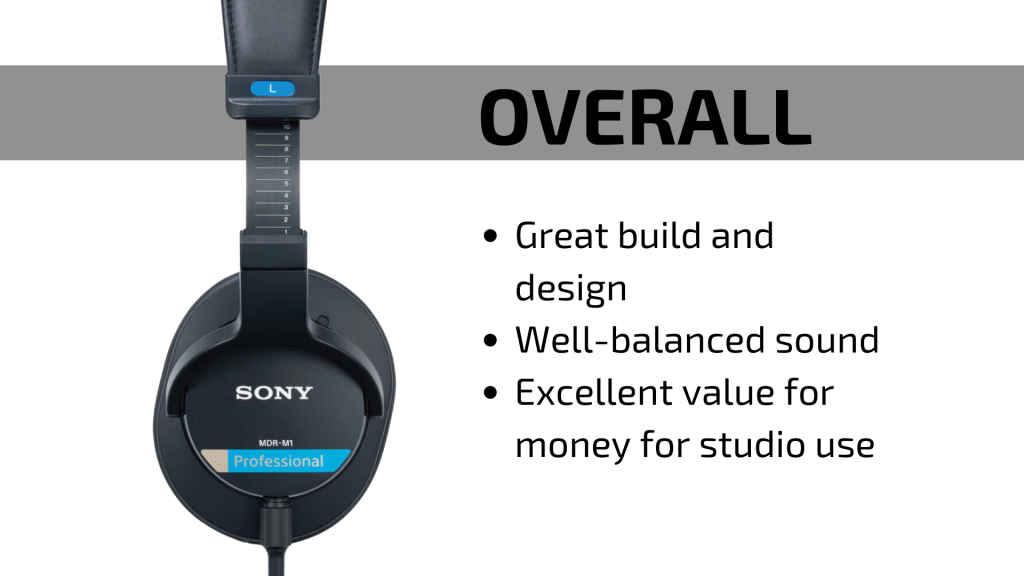Sony MDR-M1 Headphones Review – Great value for your money at ₹39,990

- Lightweight and comfortable design
- Excellent sound signature
- The steep price tag might a turn off for some consumers
The bottom line with the Sony MDR-M1 headphones is – You will not be disappointed with what you get for your money. These headphones carry a steep price tag, which might seem daunting for a lot of consumers in a price-sensitive market like India. However, if you take into account the use case of these headphones and the pricing of other similarly capable offerings from other brands, you will not be disappointed with the value-for-money proposition of these headphones.
They have a great, neutral sound signature that is suitable for studio applications and a design and build that will not let you down in any which way. If you are looking for alternatives, though, and want something slightly more versatile than these headphones, then you can look at the Sennheiser HD 490 Pro headphones. They come with two pairs of earpads in the box, have an open-back design, and a similarly neutral sound signature.
The professional headphones market in India has been brewing with offerings in the recent years with brands like Sony, Sennheiser, Beyerdynamic and Neumann locking horns to gain a spot in the studio setups of artists across the country. After their well-recieved Sony MDR-MV1 headphones, which were launched last year, Sony has thrown another hat in the ring, with the Sony MDR-M1 headphones.
Touted by the audio community as the spiritual successors to the ever-popular Sony MDR-7506, the MDr-M1 headphones bring quality build and performance to the table, without any unnecessary bells and whistles. With a fairly steep price tag of ₹39,990, these headphones might not be the go to choice for everyone in a price-sensitive market like India. However, considering the competition they are jumping into, they have a great value proposition attached to them. To know more about what makes these headphones a great value for your money, read my review of the Sony MDR-M1 –
A timeless design that will hold well in long term
In terms of the build and design, the Sony MDR-M1 headphones borrow their base aesthetic from their predecessors, the Sony MDR-7506, improving on key areas like comfort and long-term usability. These headphones come with thick memory foam earcups and a well-padded headband that ensures that you do not have any issues wearing them for longer periods of time. The headband has a metallic inlay, which ensures that these headphones will last you a long time.

As for the fit, the clamping force, which I had no complaints about, combined with the swivel on the earcups, ensures that no matter what your head shape or size is, you won’t have to worry about it. I have prescription glasses, and my head is slightly on the larger side, but I have no complaints or worries about the fit of these headphones.
These headphones have a primarily plastic construction, with the cans and the yoke being made of plastic, and as stated earlier, the headband, having a metallic inlay. If the longevity of Sony’s other professional headphones is anything to go by, then in long-term use, I am talking over a decade or longer. All you will need to replace will be the earpads, but the headphones will not give you anything to complain about.

The cable(s) also have nice rubberised outlet layer shielding, terminating in durable metallic connectors, ensuring that you won’t have to worry about their longevity as well. These headphones scream quality, and you are getting what you pay for.
If you are a frequent traveller, I would recommend you get a case for these headphones and free up some space in your backpack, as they do not come with a case, and are not the most compact pair to carry around. But that is the case with most studio monitors, and this is something that is expected. So, I won’t dock any points here. Rather, these headphones would earn a couple of extra points, because of their extremely lightweight design.
Sony MDR-M1 Headphones – Performance
In our headphone reviews, the features section usually follows the build and design section, but the Sony MDR-M1 headphones are studio monitors, and hence lack the bells and whistles of mainstream headphones. So, I will dive directly into their performance.

As is the case with Sony’s studio headphones, the Sony MDR-M1 headphones come with a fairly neutral sound profile. The mids and the lows come fairly close to our baseline reading of the pink noise that we use as our reference. The highs get a slight boost, which adds a nice touch of brilliance to the sound of these headphones and gives the vocals a much-needed presence for studio applications. To set things better in the context of real-world use, here’s a quick glance at how these headphones performed in our various test parameters –
| Test Parameters | Remarks |
| Layering and separation | These headphones have excellent instrument layering and ensure that you are getting a taste of every instrument present in your track with equal appeal. This translates to accurate mastering of each track in studio applications. |
| Vocals | The vocals, thanks to the boost in the lower end of the highs, are well represented in the most complicated tracks and have a brilliant presence overall. |
| Bass sharpness | If you are a bass-head, then skip out on these headphones. The bass response of these headphones is fairly neutral, and you get a decent bass presence. Just the right amount is needed to master your track and track instruments like bass guitars with accuracy in your tracks. |
| Metal instrument density | The metal instruments and sibilants in your tracks will also be emphasised and represented accurately. And, despite the boost in the highs, those susceptible to discomfort because of extra sibilance will not experience any discomfort. |
| Detail and positioning | The details and positioning of instruments and vocals on these headphones is also precise, with each instrument, even in complicated tracks like Around the World by Kings of Leon, being represented with pin-point accuracy and accurate positioning. I know a lot of gamers are looking at studio headphones for their setups, and if you are one, then you won’t be disappointed by the performance of these headphones. You might not get the thump you would expect from a traditional gaming headphone, but these will hold their own in any game you throw at them. |
| Distortion | Even at the highest of volumes, there’s absolutely no distortion in these headphones. They peak at around 102dB, but at those levels, you will not experience any harsh distortions in audio or drastic changes in sound signature. |
| Staging | The staging of these headphones is fairly intimate, given their closed-back design. However, when compared to offerings from competitors like Sennheiser, the sound stage of the MDR-M1 headphones is fairly wide and open. |
Should you buy the Sony MDR-M1 headphones?
The bottom line with the Sony MDR-M1 headphones is – You will not be disappointed with what you get for your money. These headphones carry a steep price tag, which might seem daunting for a lot of consumers in a price-sensitive market like India. However, if you take into account the use case of these headphones and the pricing of other similarly capable offerings from other brands, you will not be disappointed with the value-for-money proposition of these headphones.

They have a great, neutral sound signature that is suitable for studio applications and a design and build that will not let you down in any which way. If you are looking for alternatives, though, and want something slightly more versatile than these headphones, then you can look at the Sennheiser HD 490 Pro headphones. They come with two pairs of earpads in the box, have an open-back design, and a similarly neutral sound signature.
Sony MDR-M1 Key Specs, Price and Launch Date
| Release Date: | |
| Market Status: | Launched |
Satvik Pandey
Satvik Pandey, is a self-professed Steve Jobs (not Apple) fanboy, a science & tech writer, and a sports addict. At Digit, he works as a Deputy Features Editor, and manages the daily functioning of the magazine. He also reviews audio-products (speakers, headphones, soundbars, etc.), smartwatches, projectors, and everything else that he can get his hands on. A media and communications graduate, Satvik is also an avid shutterbug, and when he's not working or gaming, he can be found fiddling with any camera he can get his hands on and helping produce videos – which means he spends an awful amount of time in our studio. His game of choice is Counter-Strike, and he's still attempting to turn pro. He can talk your ear off about the game, and we'd strongly advise you to steer clear of the topic unless you too are a CS junkie. View Full Profile
